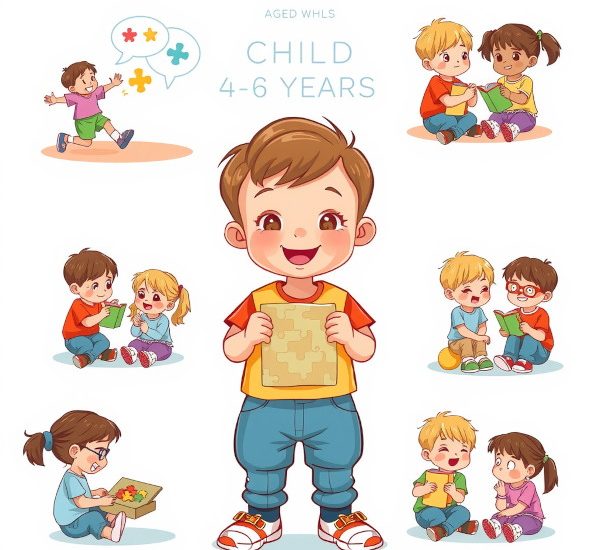Every time I go to the playground with my daughter, I am shocked and amazed by how often I hear parents addressing children with humiliating labels or comparisons to other children: “Look how nicely the other child is playing, he listens to his mother, you don’t”, “How fat you are”, “You should be ashamed!” etc. It saddens me to see how often children are humiliated in public by parents or grandparents who do not realize how much these words affect them. I have seen and heard terrible examples at playgrounds or in parks, where children are criticized or called humiliating names by adults. Some parents criticize their children in front of other children, some compare them to other children and label them based on their behavior or physical appearance. Labeling children is a common behavior, but too often overlooked.
The negative effects of labeling
This type of behavior can not only affect a child’s self-esteem, but can also lead to behavioral problems, anxiety, and depression. Children who are constantly criticized and do not receive positive feedback can begin to believe that they are not good at anything and develop a negative self-image. Children who receive negative feedback can become very self-critical and focus only on their weaknesses, forgetting to recognize and appreciate their strengths. Additionally, these children may develop a fear of failure and can be very difficult to motivate to try new things or take risks.
Labeling children can have negative effects on their development. When they are given a label such as “lazy,” “stupid,” or “hyper,” children begin to identify with that label and it can affect how they see themselves and their confidence in their abilities. Additionally, labeling can affect how others perceive children and can lead to stereotyping. Therefore, dear parents, you should avoid labeling children, comparing them to other children, or humiliating them, as this will not help them change, but rather it will make them become exactly what you tell them they are.
I must admit that this behavior may have cultural roots, or perhaps more isolated, within the family. It is one of my most frequent mistakes and apparently seems very harmless, but it is important to realize that the consequences of labeling are harmful. To overcome this barrier, we need to be open-minded and broaden our perspective of knowledge and understanding.
Examples of labeling
I have noticed that I myself have fallen into the trap of labeling my daughter, including among adults. When my child did not succeed in learning something on the first try, I was tempted to label her as “slow” or “weak”. However, I realized that these labels can be harmful and instead, I should encourage her to continue her efforts and offer her positive feedback for her progress.
- During a visit to a relative’s house, I heard the cousin’s father address his daughter, who was around 5 years old, with words like “You’re very lazy, you can’t do anything by yourself,” “You’re too shy, you need to learn to be stronger.” I noticed that these labels affected the little girl, who began to withdraw and feel insecure in our presence.
- On another occasion, I witnessed another parent addressing his 7-year-old son with harsh words and negative labels. While we were walking in the park, the boy stopped to play with a ball and made a mistake, sending the ball out of the playing area. His father started yelling at him and calling him “stupid” and “useless,” telling him he couldn’t do anything right and that he was ashamed to be his father. I was shocked and saddened to see how this child was labeled by his own parent, and I felt that this behavior would only negatively affect his emotional and psychological development.
- On another occasion, I witnessed a conversation between a mother and her teenage daughter in a clothing store. The girl was trying on different clothes and trying to choose something she liked, but the mother began telling her that she didn’t look good in that dress, that she didn’t have the right curves, or that she needed to choose something that covered more of her body. I noticed how the daughter began to lose confidence and feel embarrassed and judged.
- Another example is when I heard a father telling his son that he couldn’t be good at sports because “you’re not made for it.” I saw how the boy began to feel discouraged and believe that he was incapable of fulfilling his dream of being a good athlete.
These examples demonstrate how important the words and labels we address to our children are, and how much they can influence their emotional and psychological development.
Labeling has long-term effects
In addition, I have heard other examples from friends and acquaintances who were negatively labeled in childhood and had issues with self-esteem and confidence in their abilities later in life.
- One of my friends was labeled as “insecure and introverted” by his parents in childhood because he was shy around other children and preferred to spend time alone reading or drawing. Instead of encouraging his passions and interests and providing him with the necessary support, his parents insisted that he be more sociable and develop communication skills, often comparing him to other children who were more extroverted and confident. As a result, this friend gradually lost confidence in himself and suppressed his own passions and interests to try to meet his parents’ expectations.
- Another acquaintance was labeled as “fat and lazy” by her relatives in childhood, even though she was a healthy and physically active child. These negative labels and constant criticism affected her self-confidence and led to a problematic relationship with food and her body in adolescence and adulthood. And the examples can go on.
How to avoid labeling?
It is important to avoid labeling and instead focus on the specific behavior we want to improve. For example, instead of labeling children as “shy” or “timid”, we can encourage and celebrate moments when they have done something that was difficult for them, such as speaking in public or trying a new sport. Instead of saying “You’re too little for that,” we can say “You’re very brave for trying that.”This approach allows children to understand that their behavior can be changed without feeling judged or stigmatized.
Instead of focusing on labels and stereotypes, we should encourage children to develop their own interests and abilities. Additionally, we should support them in their efforts and encourage them to try new things. This can help them develop self-confidence and feel valued and appreciated for who they are, not for what others think they should be.
- Instead of comparing children to others, we can encourage and celebrate individual accomplishments. For example, instead of saying “Look how much better X is doing than you,” we can say “You’re so skilled at X, I love seeing you in action.”
- Another example would be to encourage and appreciate a child’s effort, even if the results are not what was expected. Instead of saying “You made a mistake, try again,” we can say “I love that you’re trying and not giving up. Let’s see how we can avoid this mistake next time.”
- We can also avoid comparing our children to others, as this can be very damaging to their self-esteem. Instead of saying “Look, your friend swam faster than you,” we can say “I love how you enjoy swimming and having fun in the water.”
- Another example would be to avoid comparing children to each other and not give compliments based on comparisons. For example, instead of saying “You’re the best soccer player on the team,” we can say “Congratulations on how well you played today, you did an excellent job.” This way, we encourage them to focus on their own skills and achievements, rather than comparing themselves to other children or feeling the pressure to be something specific in the eyes of others.
- “I like how you ask questions and try to understand things better.”
- “You are so talented at drawing, I love seeing how you use your imagination and creativity.”
- “You are such an empathetic person and care about others, that is a wonderful quality.”
- “I like how you solved this problem, you paid attention to details and found an efficient solution.”
- “You are a good listener and I like how you express your ideas and opinions.”
- “You have an adventurous spirit and enjoy exploring new things, that is an admirable trait.”
- “I like how you take responsibility for your actions and try to correct them if they were not good.”
- “You are very attentive to the needs of others and try to help them, that is a very kind gesture.”
- “You enjoy learning new things and constantly develop your skills, that is an important quality in life.”
- “You are a very curious person and enjoy discovering new things, that is a wonderful way to enrich your life experience.”
These are just a few examples of how harmful labels can be for children and how much they can affect their development. I believe it is essential to avoid attributing such labels and to encourage children to be themselves, without judging or labeling them negatively. In this way, we can contribute to increasing their self-esteem and developing a positive self-image.
It is important to remember that every child is unique and has their own qualities and talents. Encouragement and support from parents can help develop self-confidence and self-esteem, which can have a positive impact on their development as adults.




